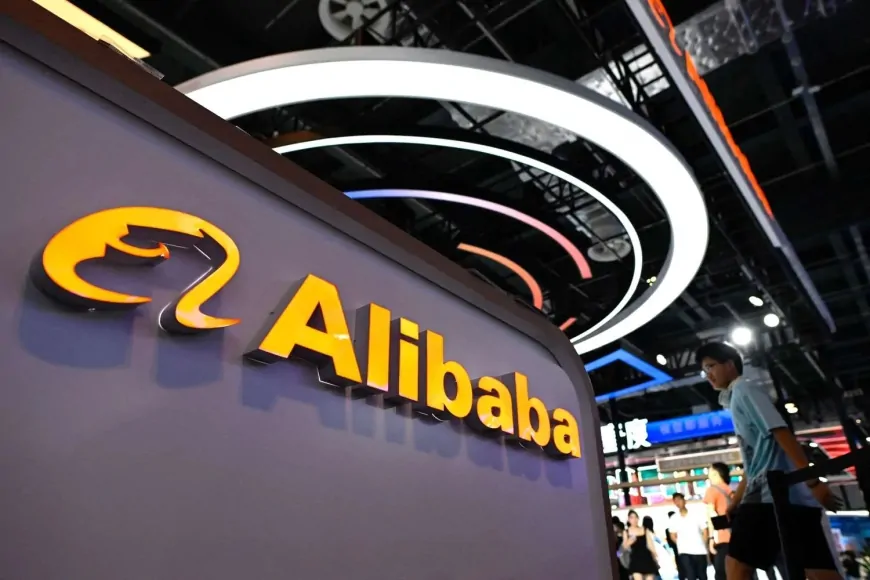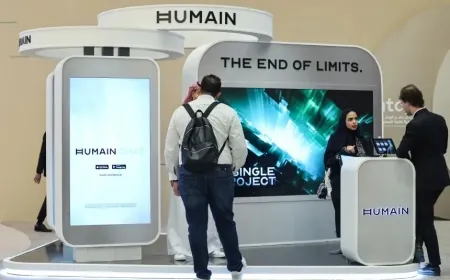Alibaba Invests $53 Billion to Build AI That Thinks Like Humans
Alibaba is making a massive $53 billion push into artificial general intelligence, aiming to develop AI that can reason and solve problems like humans.

Alibaba is making one of its most ambitious moves yet, betting $53 billion on the future of artificial general intelligence (AGI). The company is no stranger to AI, but this time, it’s aiming far beyond traditional machine learning. Instead of just improving automation and predictive algorithms, Alibaba wants to develop AI that can think, reason, and make decisions like a human.
CEO Eddie Wu has made it clear that AGI is now Alibaba’s primary goal. Unlike conventional AI, which is built for specific tasks such as language translation or image recognition, AGI aims to handle complex cognitive functions, similar to human intelligence. If successful, this could transform industries, automate high-level decision-making, and redefine how businesses operate worldwide.
Alibaba’s decision to go all in on AGI comes at a time when the company is performing strongly. In its latest earnings report, it posted an 8% increase in quarterly revenue, reaching 280.2 billion yuan ($38.6 billion), while net profits soared to 48.9 billion yuan. These results exceeded analyst expectations, giving Alibaba the financial confidence to accelerate its AI development.
The AI race is more competitive than ever, with US tech giants such as Google, Microsoft, Meta, and OpenAI investing heavily in artificial intelligence. By 2025, American companies are expected to spend over $320 billion on AI-related infrastructure. Alibaba’s $53 billion investment is its way of ensuring that China remains a major player in the future of AI.
However, competition isn’t the only challenge. The rise of cost-efficient AI models like DeepSeek has put pressure on big tech firms to prove that massive AI spending will lead to real long-term benefits. Investors are increasingly questioning whether companies can maintain their dominance without overspending on technology that may take years to mature.
For Alibaba, this investment isn’t just about AI—it’s also about solidifying its comeback. The company’s stock has surged 70% this year, fueled in part by its partnership with Apple to integrate AI into iPhones in China. This marks a dramatic shift from the regulatory challenges that Alibaba faced in recent years when Beijing’s crackdown on big tech put significant pressure on the company and its co-founder Jack Ma.
Now, there are signs that China’s government is changing its stance. Last week, President Xi Jinping met with top Chinese business leaders, including Ma, in what analysts see as a signal that the private sector is once again being welcomed. With China’s economy still recovering from pandemic-related disruptions, regulatory crackdowns, and a struggling real estate market, Beijing appears to be relying on its biggest tech firms—like Alibaba—to drive innovation and economic growth.
Despite its recent success, Alibaba’s Hong Kong-listed shares slipped 2.5% on Monday, following broader declines in Asian markets triggered by losses in the US stock market. However, Alibaba’s massive investment in AGI suggests that the company isn’t focused on short-term fluctuations—it’s looking to define the future of AI.
The real question is whether this gamble will pay off. If Alibaba succeeds in building AI that can truly think and reason like a human, it could reshape industries and push the boundaries of technology in ways we’ve never seen before. If not, it could be an expensive miscalculation in an already crowded AI race. One thing is certain—Alibaba is not backing down, and the world will be watching to see what happens next.
Also Read: OpenAI Takes Steps to Block Elon Musk’s Takeover Attempts






























































